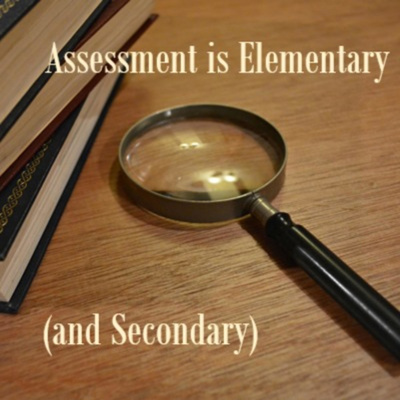Discover Assessment is Elementary (and Secondary)
Assessment is Elementary (and Secondary)

Assessment is Elementary (and Secondary)
Author: Jennifer K Ruth
Subscribed: 2Played: 5Subscribe
Share
© Jennifer K Ruth
Description
As teachers, most of us were not trained on Assessments. We learned curriculum, pedagogy, and classroom management. We did not learn how to understand an Assessment based on how it is designed or how to analyze the data effectively. Together we will explore what it means to be data literate in the educational system.
24 Episodes
Reverse
This episode is inspired by the Cult of Pedagogy Podcast episode about Finding Your Marigold, finding the people to surround yourself with who can support your growth.
This episode uses the work of Kendra Adachi and her Lazy Genius Podcast and applies the strategies to teaching. Teaching is an incredibly difficult job. So much matters about what we do. Follow a few simple steps to help make small changes to your classroom day that get you back to what matters most to you.
You will not find this topic in Educational Research, but it comes up in conversations with teachers all the time, Assessment Stamina. Whether or not students have the stamina to make it through an assessment is actually a symptom of the issue and not the root cause itself.
Standardized Assessment is often blamed for issues in Education today. But that is not fair or accurate. Standardized Assessment will always be a part of Education. What we as teachers can focus on is how we approach the assessment and use the data. Here is a link to the Cult of Pedagogy Podcast on that mentions Learner Centered Test Prep. https://www.cultofpedagogy.com/standardized-tests-what-to-do/
Instructional Agility by Cassandra Erkens, Tom Schimmer, and Nicole Dimich gives us a great perspective on how to see assessment as a verb and therefore occupy the same space as instruction.
Watching my son's Jiu Jitsu teacher was a master class in education and assessment. See how assessment can live alongside instruction seamlessly.
What is important to know about formative assessment? How do you make sure it happens? Where does it fit? What does it look like? There is an ever growing body of research to support effectiveness of formative assessment in the classroom. It is critical to understand this important tool and its place in your classroom.
When it comes to assessment, many things matter. But only one thing can matter most. Answering this question for you department or organization guides all decisions you make as a team.
In the final episode of this mini-series we get to the good things that data can do for us instructionally.
This part two of our mini series on the Good, the Bad and the Ugly of data. This week we will get into the misuse and abuse of data.
There are certainly bad and ugly things about data as well as the good. We will bring these to light in this mini series. In part 1 we will talk about the sometimes bad or not so great social-emotional impacts of data on teachers.
But what about looking at data at the individual kid level? What about when different data sources seem to contradict? What does that tell me? What do I do next?
This is a continuation of the last episode discussing topics in Assessment for which there is some disagreement.
I have learned moving to the assessment department that there are some topics in regards to testing and analysis that seem to be polarizing. People either feel one way or the other and they feel strongly about it. Often I find this confusing because I don't see where the debate is, but other times I feel like what is missing is a deep understanding of Educational Assessment and Assessment Literacy. This is a two part episode so make sure to catch all the topics discussed.
Lali Carr, Social Studies Coordinator for Plano ISD, joins our Podcast to talk about her experiences in coaching teachers and the role of Assessment in the coaching process.
Achievement is about all students getting the same, specific result, growth is about progress towards a goal.
This the final installment of Assessment Vocabulary. I think. For now. Unless I think of more terms.
This is a continuation of our last episode on the assessment vocabulary teachers need to know in order to correctly interpret and use the data.
Just like you need to know terms like saute, baste, and knead in order to cook, you need to know some specific vocabulary to correctly read and interpret assessment data. In this two part series we will explain the terms teachers need to know to analyze, interpret, and correctly use assessment data.
No one can agree on how many different assessment types there are. What we can agree on is that you need different types of assessment to fulfill different purposes and get a more complete picture of student learning. In a well balanced assessment plan, you will see different types of assessment included to measure different aspects of student learning.






